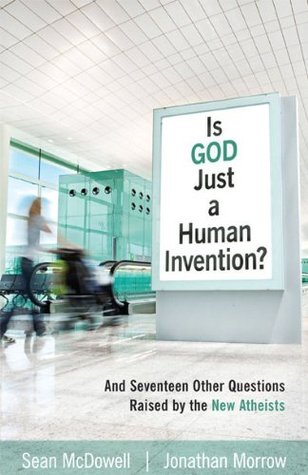More on this book
Kindle Notes & Highlights
Started reading
July 16, 2020
Dawkins admits that since we are the product of natural selection, our senses cannot be fully trusted.18 After all, according to Darwinian evolution, our senses have been formed to aid survival, not necessarily to deliver true belief.
Even Charles Darwin was aware of this problem: “The horrid doubt always arises whether the convictions of man’s mind, which has developed from the mind of the lower animals, are of any value or at all trustworthy. Would anyone trust the conviction of a monkey’s mind, if there are any convictions in such a mind?”
Liars make poor martyrs.
Alexander Vilenkin, a leading cosmologist of our day, concludes, “It is said that an argument is what convinces reasonable men and a proof is what it takes to convince even an unreasonable man. With the proof now in place, cosmologists can no longer hide behind the possibility of a past-eternal universe. There is no escape, they have to face the problem of a cosmic beginning.”
“For the scientist who has lived by his faith in the power of reason, the story ends like a bad dream. He has scaled the mountains of ignorance; he is about to conquer the highest peak; as he pulls himself over the final rock, he is greeted by a band of theologians who have been sitting there for centuries.”
As we will see, the complexity of even the simplest cell not only poses an unbelievably difficult hurdle for atheism, but it points strongly toward the existence of an immaterial Mind.
Philosopher John Leslie expands on this need for explanation in his famous “firing squad” analogy. Suppose fifty trained sharpshooters are lined up to take your life, and they all miss. You could hardly dismiss this occurrence by saying, “If they hadn’t all missed me, then I shouldn’t be contemplating the matter so I mustn’t be surprised that they missed.”9 You should still be surprised that you are alive given the enormous unlikelihood of all the sharpshooters missing their mark. Your survival demands an explanation. And so does the fine-tuning of the laws of the universe.
Physical systems operate completely by external programming, not by inner decision making. Thus, if materialism is true, you do not have any genuine ability to choose your actions.
Denying free will comes at a high price, for it raises troubling questions: How is love meaningful if not freely chosen? How can we hold people morally accountable for their actions if they could not have done otherwise? What’s the point of punishment?
C. S. Lewis powerfully articulates this point: “Creatures are not born with desires unless satisfaction for those desires exists. A baby feels hunger: well, there is such a thing as food. A duckling wants to swim: well, there is such a thing as water. Men feel sexual desire: well, there is such a thing as sex. If I find in myself a desire, which no experience in this world can satisfy, the most probable explanation is that I was made for another world. Probably earthly pleasures were never meant to satisfy it, but only arouse it, to suggest the real thing.”


